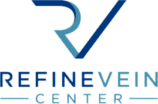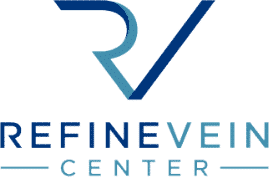Vein health is often overlooked in discussions about workplace wellness, but it’s a critical aspect of overall health that deserves attention. Many of us spend most of our waking hours at work, and the nature of our jobs can significantly affect our vascular health—sometimes without us even realizing it.
The Role of Prolonged Sitting or Standing
One of the most significant workplace factors affecting vein health is prolonged periods of sitting or standing.
- Sitting for Extended Periods: Jobs that require long hours at a desk, such as office work, can lead to reduced blood circulation. This can increase the risk of developing varicose veins, spider veins, or even deep vein thrombosis (DVT), a potentially life-threatening condition where a blood clot forms in a deep vein.
- Standing for Long Durations: Roles such as retail workers, teachers, and healthcare providers often require prolonged standing. This can lead to blood pooling in the lower extremities, causing swelling, pain, and the formation of varicose veins over time.
High-Stress Environments
Individuals in demanding, high-pressure careers often face chronic stress, which can contribute to unhealthy behaviors like neglecting a balanced diet, avoiding physical activity, or developing habits such as smoking—all of which can negatively impact vein health.
Heavy Lifting and Physical Strain
Jobs that require heavy lifting, such as construction work or warehouse jobs, can put additional pressure on veins. Repeatedly lifting heavy objects increases abdominal pressure, which can impair blood flow from the legs back to the heart. Over time, this can exacerbate vein problems.
Travel-Intensive Roles
Frequent travel, especially by plane, is an additional factor that can compromise vein health. Sitting in confined spaces for long hours increases the risk of DVT. People in travel-heavy roles, such as consultants or sales representatives, should be particularly vigilant about maintaining circulation during long flights or car rides.
Sedentary Roles
With the rise of remote work and screen-reliant jobs, more people are spending excessive time sitting in front of computers. This sedentary lifestyle can have a cascading effect on vein health, leading to poor circulation and an increased risk of vein-related issues.
Preventative Steps to Combat Job-Related Vein Conditions
Preventing vein conditions starts with simple, actionable habits. Incorporate movement into your daily routine, whether standing up to stretch every hour, taking short walks during breaks, or even doing calf raises at your desk. Staying hydrated is equally essential, as proper hydration supports healthy blood flow. Compression stockings can provide extra support for those who stand or sit for extended periods by promoting circulation and reducing swelling. Maintaining a healthy weight and practicing good posture can alleviate pressure on veins.
Taking these preventative measures, you can reduce strain and support your vein health, even in demanding work environments.



